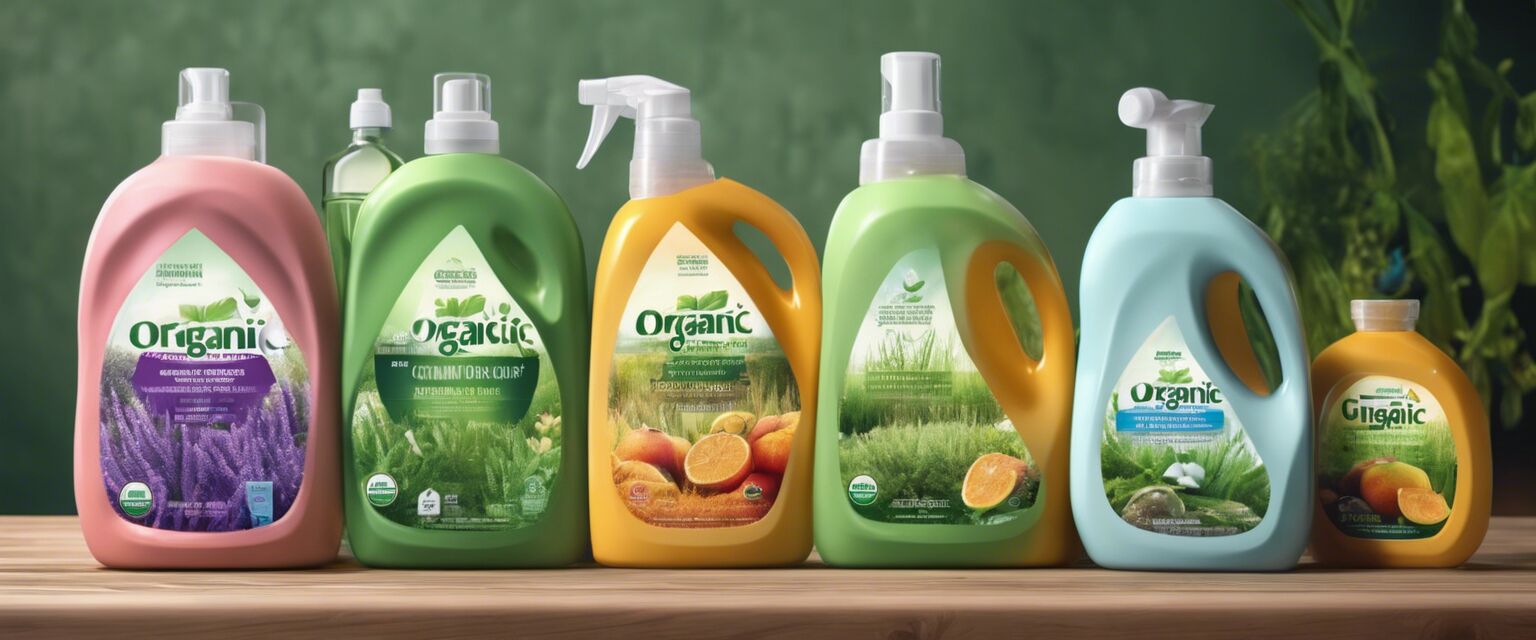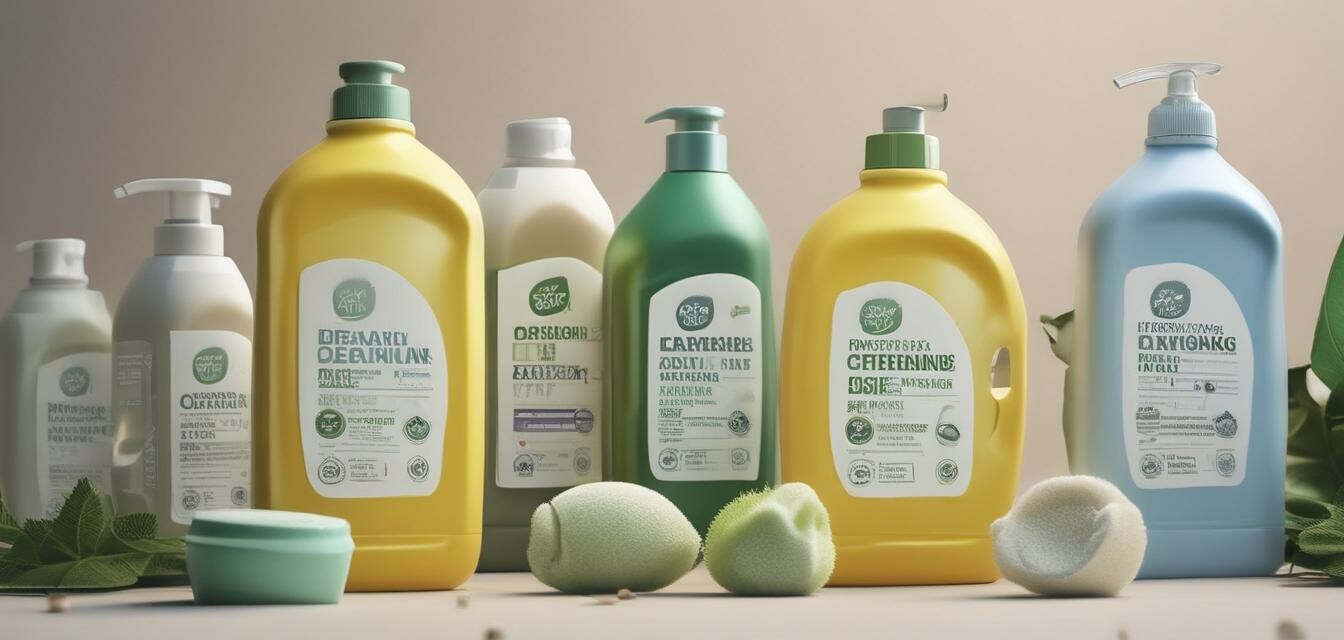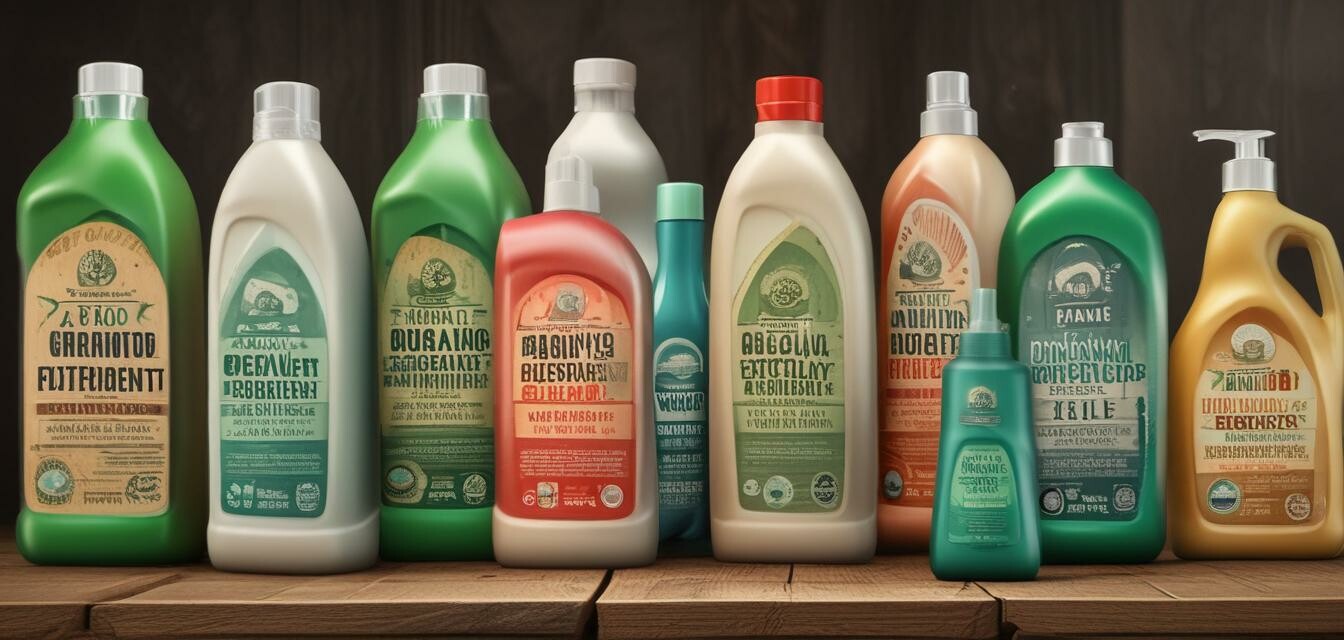
Environmental Impact
Key Takeaways
- Organic detergents are less harmful to ecosystems compared to traditional chemical detergents.
- They promote sustainability through biodegradable ingredients.
- The use of organic detergents can lead to better indoor air quality.
- Awareness of the environmental impact can guide consumers in making better choices.
Understanding the environmental benefits and impacts of using organic detergents is crucial in today's eco-conscious world. As consumers become more aware of the consequences of their purchasing decisions, the demand for environmentally-friendly cleaning products has surged. This article explores how organic detergents affect our environment positively and negatively, highlighting the importance of choosing the right cleaning products for both personal and ecological health.
What Are Organic Detergents?
Organic detergents are cleaning agents made from natural ingredients, including plant-based materials and essential oils. Unlike traditional chemical-based detergents, organic options are designed to minimize environmental impact while still being effective in cleaning. They do not contain synthetic fragrances, preservatives, or harmful chemicals, making them a safer choice for both users and the environment.
The Environmental Benefits of Organic Detergents
1. Biodegradability
One of the most significant advantages of organic detergents is their biodegradability. These products are made from natural substances that can break down into non-toxic components in the environment.
| Feature | Traditional Detergents | Organic Detergents |
|---|---|---|
| Biodegradability | Low | High |
| Impact on water systems | Pollution risk | Minimal impact |
| Residual chemicals | Often present | None or negligible |
2. Reduced Toxicity
Using organic detergents helps to lower the toxicity levels in our environment. They do not contain phosphates, which can lead to harmful algal blooms in waterways, threatening aquatic life.
3. Improved Air Quality
Traditional cleaning products often release volatile organic compounds (VOCs), contributing to poor indoor air quality. Organic detergents, on the other hand, produce fewer or no VOCs, leading to a healthier living space.

Possible Environmental Impacts of Organic Detergents
1. Sourcing and Manufacturing
The sustainability of organic detergents also depends on how their ingredients are sourced and manufactured. If raw materials are not sourced ethically or sustainably, it can negate the environmental benefits.
2. Packaging Waste
Even though many brands are moving towards sustainable packaging, some organic detergents still use plastic bottles, contributing to plastic waste. Always look for brands using recyclable materials.
3. Prolonged Usage
Overuse of any cleaning product, including organic detergents, can lead to environmental degradation. It’s essential to follow recommended usage instructions for optimal impact.
Choosing the Right Organic Detergent
When selecting an organic detergent, consider factors such as ingredient transparency, packaging sustainability, and performance. Here are some tips:
Tips for choosing organic detergents
- Check for certification labels (e.g., USDA Organic).
- Research the brand’s commitment to sustainability.
- Look for refillable or recyclable packaging options.
- Read customer reviews for insight on effectiveness.
- Choose product lines that prioritize eco-friendly practices.
Comparing Organic Detergents with Conventional Options
| Criteria | Organic Detergents | Conventional Detergents |
|---|---|---|
| Environmental Impact | Minimal | High |
| Toxicity Level | Low | High |
| Air Quality | Improved | Poor |
| Biodegradability | High | Low |
| Sustainability | Promotes | Often undermined |
Conclusion
The shift towards using organic detergents marks a significant step toward sustainability and environmental responsibility. By choosing organic options, consumers can protect ecosystems, improve air quality, and support ethical sourcing practices. Awareness of the impact that our choices make can promote a cleaner, greener future for all.
Learn More About Cleaning Products
For more information on eco-friendly cleaning solutions, explore our product categories:
- All-Purpose Cleaners
- Bathroom Cleaners
- Dishwashing Liquids
- Floor Cleaners
- Glass Cleaners
- Laundry Detergents
Pros
- Environmentally friendly ingredients
- Biodegradable and non-toxic
- Improves indoor air quality
- Contributes to sustainability
Cons
- Potential for unsustainable sourcing
- Packaging waste concerns
- Performance may vary with certain brands








